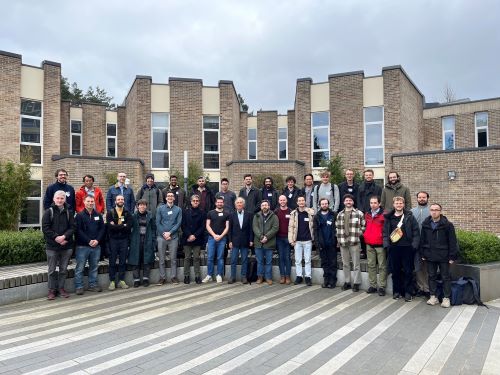Gravitational Self-Force and Scattering Amplitudes Workshop
4305
Higgs Centre Seminar Room

Recent developments in scattering amplitudes have given new insights into the classical two-body dynamics in the post-Minkowskian expansion (i.e., expansion in Newton's constant), leveraging extremely efficient computational techniques traditionally used for collider physics. At the same time, the gravitational self-force expansion has allowed the gravitational-wave community to develop a description of the two-body dynamics which is fully non-perturbative in the coupling, while being accurate only in the limit of small mass ratios.
There are exciting prospects in uniting these two complementary approaches, possibly yielding powerful new modeling methods for gravitational-wave astronomy and new insights into the connections between gravity and amplitudes. In the past year there have been notable steps toward this goal, but much more remains to be done to fully benefit from synergies between the two methods. This workshop will bring together experts from both communities to establish new collaborations, with the following topics to be discussed:
- recovering self-force through resummation of PM results;
- comparison between self-force and analytical post-Newtonian/post-Minkowskian results;
- Kerr black holes from amplitudes and point particles;
- double copy structures in classical gravity and black hole perturbation theory.
Confirmed speakers:
Clifford Cheung, Thibault Damour, Abraham Harte, Tanja Hinderer, Chris Kavanagh, Sonja Klisch, Dimitrios Kosmopoulos, Zhengwen Liu, Oliver Long, Gustav Mogull, Barry Wardell, Chris Whittall
Organizers:
Riccardo Gonzo, Chris Kavanagh, Adam Pound, Mao Zeng
All participants will be treated equally without regard to gender, sexual orientation, race, age, religion, disability, or any other circumstance. Participants from underrepresented and traditionally disadvantaged backgrounds are particularly encouraged to register.
Note: If you are interested in this workshop, we encourage you to register before February 20th 2024. Unfortunately our space is limited, so we will moderate the registration and cannot guarantee at this point to be able to offer to everyone the possibility to attend in person. Talks will be anyway recorded and posted here, so they will be available to everyone.
